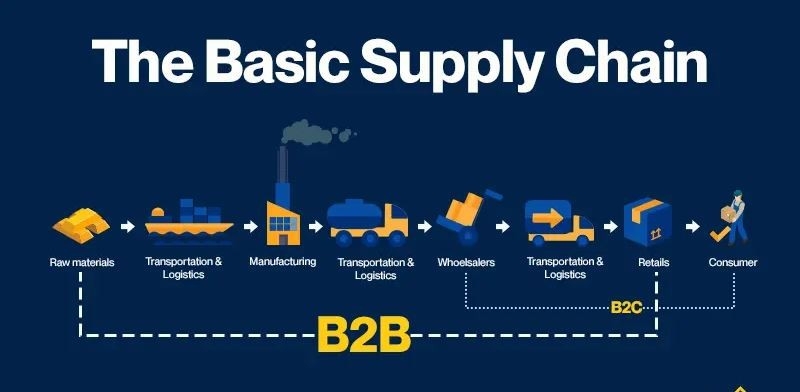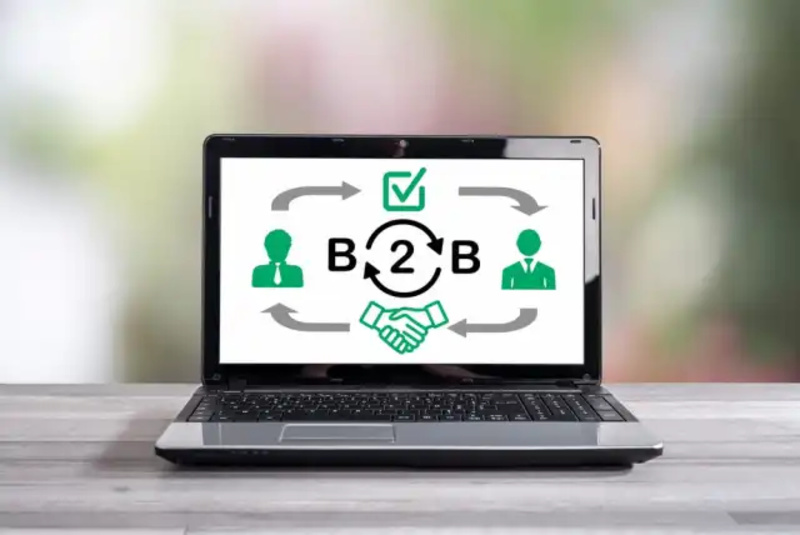B2B transactions, which mean business-to-business dealings, are those between two businesses instead of a business and a customer. This can involve the exchange of goods, services, or information. Understanding B2B transactions is important in understanding the complex network of commercial relationships that move industries forward.
The Dynamics of Commercial Relationships
In the B2B business world, commercial connections are like complicated spiderwebs. They don't just include DS direct buyers and sellers, but also middlemen or go-betweens, advisers, and other kinds of service providers. These relationships are not only about transactions. They often turn into strategic collaborations with a goal for both parties to grow and achieve success together. Trust is very important in these connections, as well as reliability which makes people feel dependable and certain about things too.
In commercial relationships, businesses need to be flexible and adjust their strategies according to market changes and what customers want. Being adaptable in meeting partners' needs helps make these relationships last over time.
- Adaptability: Businesses must be ready to pivot and adjust their strategies to accommodate the changing needs and expectations of their commercial partners.
- Transparency: Open communication and transparency build trust and foster stronger commercial relationships, enabling smoother collaboration and problem-solving.
Navigating B2B Supply Chains

B2B supply chains are like the heart of worldwide trade, helping in moving products and services from making to using. They show more than just a straight line path for materials; they have lots of connected parts that rely on each other. The teamwork between suppliers, makers, distributors, and logistics is important to make sure the supply chain functions at its best level both in terms of efficiency and effectiveness.
To make supply chain management resilient, businesses need to focus on risk assessment and ways of reducing risks. If we can predict possible disturbances and prepare alternative plans, it will help protect from stopping the movement of goods or services.
- Risk Management: Proactive identification and mitigation of supply chain risks protect businesses from potential disruptions and ensure continuity of operations.
- Sustainability: Embracing sustainable practices throughout the supply chain enhances resilience and reduces environmental impact, aligning with evolving consumer preferences and regulatory requirements.
The Role of Technology in B2B Transactions
For business-to-business (B2B) transactions, technology acts as a spark for new ideas and better effectiveness by changing old ways of doing things. E-commerce systems create online markets where companies can easily link up and make deals with each other, helping them grow their market range and client list. Electronic data interchange (EDI) assists in exchanging business papers electronically, making communication smoother and lessening paperwork.
With the continuous growth of technology, businesses should give importance to cybersecurity for protecting important data and ensuring honesty in B2B transactions. Strong methods of cybersecurity help to prevent data breaches and cyberattacks, keeping faith and trust intact in digital business dealings.
- Cybersecurity: Prioritizing cybersecurity measures safeguards sensitive data and preserves the integrity of B2B transactions, protecting businesses from potential threats and vulnerabilities.
- Integration: Seamless integration of technological solutions enhances interoperability and connectivity, enabling smoother B2B transactions and collaboration across disparate systems.
Financial Considerations in B2B Transactions
In B2B transactions, financial management is very important. Businesses use a variety of pricing strategies and handle the invoicing process along with payment terms to make sure they have both profit and liquidity. For maintaining operations and making investments in chances for growth, it's essential to manage cash flow effectively. This requires businesses to find a balance between what they're owed (accounts receivable) versus what they owe others (accounts payable).
Besides the usual financial aspects, in B2B transactions businesses also need to handle regulatory compliance and taxation matters. Keeping up with regulations related to the transaction and seeking advice from experts can help reduce the chances of not following rules correctly, leading to possible monetary penalties.
- Regulatory Compliance: Awareness of regulatory requirements and compliance obligations is essential for avoiding legal pitfalls and maintaining financial integrity in B2B transactions.
- Cash Flow Optimization: Optimizing cash flow through efficient invoicing and payment processes enables businesses to maintain liquidity and seize growth opportunities in the B2B landscape.
Future Trends in B2B Commerce

The future of B2B commerce is affected by continual advancements in technology, changes in the market, and how consumers act. Artificial intelligence (AI) and machine learning algorithms give businesses the ability to examine big sets of data, providing them with useful understanding that improves decision-making and competitive edge. Additionally, the rise in e-commerce platforms and digital marketplaces makes it easier for small-scale firms to enter global markets as it reduces barriers such as high costs or complex logistics. This paves the way for more balanced competition between large corporations and smaller enterprises.
For businesses shifting towards digital changes, it's crucial to give importance to data privacy and ethics in B2B transactions. High ethical standards and protection of customer data are key elements that create trustworthiness among business partners. This foundation helps establish lasting relationships and loyalty towards the brand.
- Ethical Considerations: Upholding ethical standards and protecting customer data in B2B transactions fosters trust and credibility, strengthening relationships and enhancing brand reputation.
- Globalization: The increasing interconnectedness of global markets presents both opportunities and challenges for businesses, requiring adaptation to diverse cultural norms and regulatory environments in B2B commerce.
Conclusion
To end, comprehending B2B dealings and commercial associations is a crucial element for businesses functioning in the worldwide economy that is highly connected today. By exploring the intricacies of B2B transactions, employing technology, and keeping up with upcoming tendencies, businesses can move through this complicated B2B environment confidently and take advantage of fresh chances for expansion and achievement.







